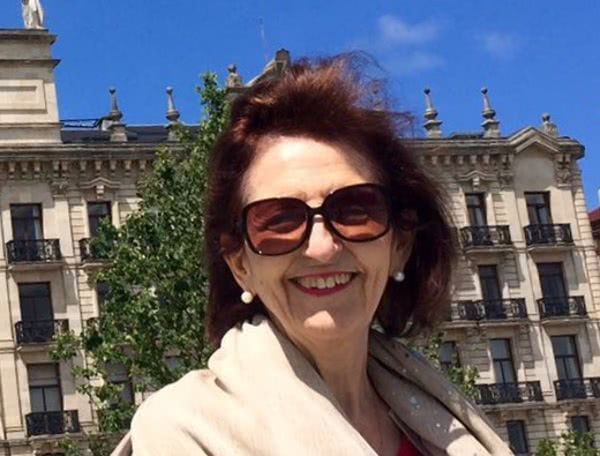"The Vanguard of the East"
Such a big-sounding title automatically conjures up the image of robust men, a cavalry and such like.
But titles can be deceiving. Like this one. The Vanguard of the East by Ana Labrada is a memoir of the apostolic expansion of Opus Dei in the Philippines from the point of view of women. That is not to discount the role played by the men. It simply highlights how the feminine genius influenced the spread of the universal call to holiness and apostolate in the Philippines and parts of Asia.

The book is at bottom, a story of faith. In 1965, three young Spanish women from Pamplona, Barcelona and Sevilla travelled across the continent to sow “seeds of holiness” in the archipelago. Knowing very little English, and just broad strokes of the people and their lifestyle, they came nevertheless, propelled by the blessing of St. Josemaria Escriva, founder of Opus Dei from whose faith they drew.
From day one, their life became one big adventure. Everything was new to them: the scorching heat, the omnipresent insects, the picturesque jeepneys, the frightening tropical storms and earthquakes, the exotic cuisine, the captivating Filipino smile, etc. Their experiences were sometimes dramatic but mostly humorous. Next to faith, they attest that their sense of humor—another legacy from their founder whose joie de vivre was based on his love for the God of life—saw them through.This great adventure is what the book chronicles.
Throughout its pages, The Vanguard of the East captured the impressive singleness of purpose of these valiant women. All their projects, small and big, had one goal: to empower women in different aspects—improvement of general culture, acquisition of better work skills, enhancement of social relations—to prepare them for a deepening in their faith to be able to spread it in the Philippines and from the Philippines to the rest of Asia.
Not all people have the luck of seeing dreams come true in their lifetime. But perhaps as a reward for their faith and hard work, they witnessed how Opus Dei spread its wings to Taiwan, Hongkong, Singapore, Macau, Indonesia, Korea and now also in Vietnam, Thailand and mainland China.
Few would contest that these three could rank among the women of influence with their silent but effective work at women empowerment and modern evangelization.
This in parallel could also be said of the author herself. Ana Labrada belongs to the 2nd wave of Opus Dei women who were asked by the Founder to do apostolic work in the Philippines. Armed with her training in Home and Food Management, Ana had a hand in running residences and training centers for Residential and Institutional Management in the Philippines, the latter targeting mostly girls with less financial means. Her sphere of influence was mostly in promoting the dignity of domestic tasks and empowering women involved directly in this occupation. For her expertise, she was counted on to run the same training programs in Hong Kong and Nigeria.
The idea of the book was born when during one visit, her father showed her a compilation of the letters she had sent them—around 350 in all—throughout her stay in the Philippines, all carefully classified. It occurred to her then to reconstruct the history of Opus Dei in the Philippines.

The Vanguard of the East thus stands witness to many realities: the power of faith, the crucial role of women in evangelization, the effectiveness of silent and hidden work. Above all, it gives credence to the prophetic words of St. Josemaria: “You who are like the Vanguard of the Catholic Church in the East, you will be received well everywhere. You are like the miracle of God in the Orient, being such a Catholic nation, with so much devotion to the Virgin, so much love for our Lord in the Eucharist.”
Originally written in Spanish, the English translation done by Prof. Daisy Lopez from the University of the Philippines entitled “The Vanguard of the East” will be launched at the Dizon Auditorium of the University of Asia and the Pacific – the book’s local publisher – on 29 April 2017.
For details on the event, please get in touch with Ms. Beng Alcazaren at beng.alcazaren@uap.asia or Hazel Aranton at 0917-895-0408.
Article by Jing Gomez
